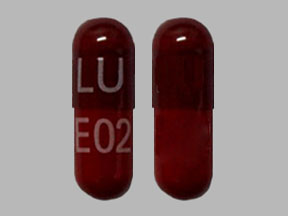Rifampin and Alcohol/Food Interactions
There is 1 alcohol/food/lifestyle interaction with rifampin.
Rifampin Food/Lifestyle
Moderate Food Interaction
Food can decrease the levels of rifAMPin in your body. Taking rifAMPin on an empty stomach (at least 30 minutes before or 2 hours after a meal) will make it easier for your body to absorb the medication. Avoid drinking alcohol while taking rifAMPin because alcohol use may increase the risk of damage to your liver. It is important to seek immediate medical care if you experience any severe side effects or symptoms of liver damage such as fever, chills, joint pain or swelling, unusual bleeding or bruising, skin rash, itching, loss of appetite, fatigue, nausea, vomiting, dark colored urine, and/or yellowing of the skin or eyes. It is important to tell your doctor about all other medications you use, including vitamins and herbs. Do not stop using any medications without first talking to your doctor.
Switch to professional interaction data
Rifampin drug interactions
There are 770 drug interactions with rifampin.
Rifampin disease interactions
There are 6 disease interactions with rifampin which include:
More about rifampin
- rifampin consumer information
- Check interactions
- Compare alternatives
- Pricing & coupons
- Reviews (22)
- Drug images
- Side effects
- Dosage information
- During pregnancy
- Drug class: rifamycin derivatives
- Breastfeeding
- En español
Related treatment guides
Drug Interaction Classification
| Highly clinically significant. Avoid combinations; the risk of the interaction outweighs the benefit. | |
| Moderately clinically significant. Usually avoid combinations; use it only under special circumstances. | |
| Minimally clinically significant. Minimize risk; assess risk and consider an alternative drug, take steps to circumvent the interaction risk and/or institute a monitoring plan. | |
| No interaction information available. |
See also:
Further information
Always consult your healthcare provider to ensure the information displayed on this page applies to your personal circumstances.


